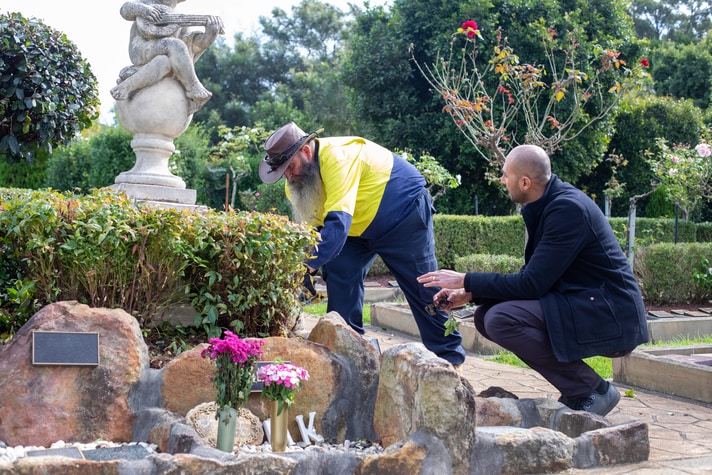The health benefits of work
Published by MAXSolutions on December 16, 2021

Being in work is important. While getting paid so you can support yourself and those that rely on you is the most obvious benefit of being employed, the associated health benefits of work are sometimes misunderstood or overlooked.
Generally, studies tend to focus on the negative impacts of certain workplaces or industries and the ill effects on peoples mental and physical health.
But there are plenty of benefits too for both individuals and society more broadly.
The physical health benefits of work
The physical health benefits of work can differ depending on the role and industry you are in.
For example, someone working in a physically demanding job on a construction site is likely to see greater benefits to their physical health than say an office worker.
However, there is a noted difference between the level of physical activity between those that are employed and those without work regardless of their role.
Peter from north Brisbane recently returned to work after a long period of illness and unemployment.
He spoke of the health benefits of work as a bus driver: “I’ve found having a job helpful in every area.
I have been on the improve with my health, now my sleeping pattern is more regulated, thanks to the early starts,” Peter says.
The benefits of increasing the amount of physical activity in your daily life are well established. From increased cardiovascular health and fitness to a stronger immune system making you less susceptible to illness or disease.
Teska, a MAX customer shared the physical health benefits she is experiencing after starting work as a cleaner on a commercial property: “We clean a large area and since I’ve started there, I’ve also lost heaps of weight walking around and cleaning,” she says.
Even if you are in a job that isn’t very physical you can increase your activity by regularly stretching, working at a stand-up desk or by walking to a bus or train stop further away or cycling to work.
The mental health benefits of work
Working provides a sense of purpose, increased self-worth and contributes to identity. These are all crucial components to having strong mental well-being.
When we are confident in ourselves and content with our lives we tend to exercise more, are more social with our friends and family and take better care of our health and diet.
MAX customer from Sydney, Ian shares how having a job with a supportive employer has helped his mental health.
“If it wasn’t for the staff, management, workers, admin or the sales staff…to have people pull up to see how I’m going, you wouldn’t believe how much better that makes me feel, to know people care,” says Ian.
If you don’t look after your mental health it makes it very difficult to achieve our goals, maintain strong personal relationships and live a life that is meaningful to us.
The health benefits of work for people with disability
For those living with disability, the negative impacts of unemployment are even more pronounced. Ongoing work in an inclusive workplace contributes significantly to greater mental well-being of people with disability.
The increase in self-worth and a sense of identity and purpose that results from work and social inclusion doesn’t just result in better health outcomes for people with disability.
Jess in Warragul, New South Wales lives with autism. For her, being offered an administration role within the MAX office changed her life.
Far from the customer that first walked through the MAX doors in 2016, Jess has blossomed into a confident and capable employee and young woman.
“I’ve loved every second of being at MAX. It’s been the best thing ever. Just being able to go to work; I appreciate being able to go to work. I’m always willing to help people out.
“It’s very rewarding to help other people out who may need a little bit extra assistance. I have a lot of empathy for them in that I know where they’ve come from,” she says.
“I just love it, I just love work – it’s one of the best things,” she says.
Businesses that employ a diverse and inclusive team are rewarded with workers that have lower levels of absenteeism and tend to stay longer in their roles.
Including people with disability more fully in society can also reduce demands on welfare and health systems as they become more financially independent leading to higher living standards.
The health benefits of work for older Australians
Ageism is still a concern in the workforce in Australia. Older Australians, despite a wealth of knowledge and work experience, take up to twice as long to find work than younger workers.
This can have a serious impact on their self-worth and has subsequent impacts on their physical health.
Stronger declines in older Australians health has a direct impact on the countries health system and affects all of us, particularly as the average age of Australia continues to rise.
Although she had over 30 years’ experience in customer service, Lindy found finding work difficult and her hope was diminishing.
When her MAX team in Tasmania supported her into a role with a local hotel, Lindy found her hope return.
“I had started to feel like I didn’t want to try anymore. I was so down. They came and saved me,” she says.
If you are looking for work you can get in touch with one of our team below
If you are looking to add to the diversity of your team or business find out more here:
Share
Tags
Found this useful?
Help and advice
Our blogs are about helping people seek the information that they need for their steps in the workforce.














_1.jpg)





























.jpeg)

















